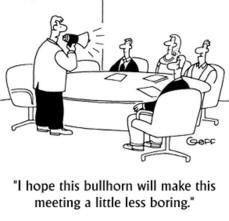 I’m thrilled to announce that rising junior Matt Bilotti will be my successor as the next President of the Northeastern University Entrepreneurs Club. Our team’s executive board just voted him in, but that wasn’t a surprise for me; in fact, I knew Matt was going to be the next President since last October. This is the story of how a leadership development strategy crafted Matt from inexperienced sophomore to chief executive.
I’m thrilled to announce that rising junior Matt Bilotti will be my successor as the next President of the Northeastern University Entrepreneurs Club. Our team’s executive board just voted him in, but that wasn’t a surprise for me; in fact, I knew Matt was going to be the next President since last October. This is the story of how a leadership development strategy crafted Matt from inexperienced sophomore to chief executive.
It is October 2011 when I walk in the door at an Entrepreneurs Club meeting. Sure enough, Director of Marketing sophomore Matt Bilotti is just a minute behind me, ready to get the room setup an hour before our 100+ person event. As I think back to recent events the club has put on, I come to an interesting realization: Matt is always “just a minute behind (or ahead) of me” when it comes to preparation. As President, I attend nearly every event the club puts on, which is usually about 6 weekly. There is only one other person that attends all of those with me: Matt. I never asked him to, he just shows up. He is at every meeting, every event and responds to every email. As a manager, this gives me a simple indicator: Matt cares. Matt’s passion for the organization can only rival mine. Needless to say, this was the first indicator that Matt has potential for the big job of President.
Once I discovered Matt’s passion, care and how it set him apart, I decided to spend more time with him. I invited him to more meetings and asked his opinion in more emails. Before we knew it, he was playing a Vice President role informally, taking on many of the tasks without the title or authority of VP. As Matt continued to add value in all that I threw at him, it hit me that he could be the next President. But at this point he is young and inexperienced. So what did we do? We created and executed the following leadership development strategy:
1. Critical Beyond Belief
When most people on my team make a mistake, I am generally pretty comforting, help them understand what they did wrong, and am lenient in letting it go. With Matt on the other hand, I was ruthless. I ripped apart his emails, comments and any written documents with a slew of constructive criticism on the weaknesses and specifically how he can improve them. When he made a silly comment in a meeting, I came down on him harder than anyone else.
This all got to him sometimes and I could feel his intense frustration. He might not have realized how much it burned me inside to see him agitated. But I knew I had to keep going. So I just pushed harder. I taught him how to send authoritative emails, engage with sponsors and motivate teammates to excel.
2. Meetings Meetings Meetings
I pulled Matt into many management and recruiting meetings. He watched and soaked in how I handled on boarding new teammates and senior level management challenges.
3. Expanding the Marketing Department
To give Matt more responsibility, we expanded the Marketing Department, created a new program called Marketing Marines which he manages and gave him responsibility for another brand new club program, Engineers for the Greater Good. Having oversight on these new programs gave Matt an opportunity to build his leadership skills in real life as opposed to just watching.
4. Spending Time
Matt and I started spending a lot of time together. In the fall we would watch movies together on the weekends, and in the spring we started going to the gym together every morning. The gym was just an extended conference room – we discussed organizational successes and challenges, and used the time to brainstorm solutions. Matt was able to get a clear view of what the role of President was like because we interacted with each other so much.
5. Caring
Perhaps the most important element of this leadership development strategy is that I truly care about Matt. When he is struggling or upset, I want to help him and see him feel better. I want him to grow, learn and succeed, and over the past year I invested a lot of time into ensuring that he will. This element is why I was able to be so critical with Matt, and an important “secret sauce” in the leader development and mentor/mentee strategy. Below is an excerpt from an email I sent him in February when I sensed he was being challenged with the training:
“I know I am extremely critical and rough on you, more so than with anyone else. I know this can be challenging and aggravating at times. I call you out on stuff I’d never mention to most other people. While this is challenging to work through now, it will be immensely beneficial for you going forward. I am incredibly proud of you and all of your hard work so far this semester and your journey towards becoming the next great leader of our organization.
What I am doing now is a crash course to prepare you for that, which means that if it is to be done well it requires me to be hyper-critical. Most people won’t do that for you… they won’t call you out on things. Instead, they’ll let your weaknesses build up until you fall. That is a shameful disservice to you. Few people will have the guts to call you out… and those are the people you want to be surrounded by because they actually care about you.”
I joke that Matt was my biggest “project” this year; and all joking aside, it is pretty much accurate. Through all of the leadership development, meetings, constructive criticism and teaching, Matt has emerged as a force to be reckoned with. He is organized, forceful, insightful and can control a room. He knows how to identify talent and how to cultivate it. He still has a ton to learn, but I am confident that he is ready to take on the role of youngest President in the history of the club. Put bluntly, Matt will kick ass in his role and I cannot wait to watch him do it next fall.
 Have you ever went into a meeting with your business partner and he started to say something that was totally different from what you were thinking? Maybe even something you didn’t agree with? It would be pretty awkward, esspecially if you are sitting in front of a customer or new recruit. Luckily, there is a great way to avoid this: we call it “being one brained.”
Have you ever went into a meeting with your business partner and he started to say something that was totally different from what you were thinking? Maybe even something you didn’t agree with? It would be pretty awkward, esspecially if you are sitting in front of a customer or new recruit. Luckily, there is a great way to avoid this: we call it “being one brained.” Delegation is a wonderful thing. For my first few weeks as COO of
Delegation is a wonderful thing. For my first few weeks as COO of  Rewind to sophomore year of college, and I am a networking fanatic. I spent a ton of time hopping from event to event in Boston, piling up business cards in stacks across my desk. Looking back, this wasn’t the most effective strategy. Meetings lots of people and adding them on LinkedIn is a good first step but it needs to be solidified by building relationships. Instead of endless networking, consider the following approach I have since embraced:
Rewind to sophomore year of college, and I am a networking fanatic. I spent a ton of time hopping from event to event in Boston, piling up business cards in stacks across my desk. Looking back, this wasn’t the most effective strategy. Meetings lots of people and adding them on LinkedIn is a good first step but it needs to be solidified by building relationships. Instead of endless networking, consider the following approach I have since embraced: When 3pm rolled around around this past Friday, I climbed up through the pile of papers on my desk at
When 3pm rolled around around this past Friday, I climbed up through the pile of papers on my desk at  I walk into the office on a warm Friday afternoon to find Freshmen Entrepreneurs Club member
I walk into the office on a warm Friday afternoon to find Freshmen Entrepreneurs Club member  I’m thrilled to announce that rising junior
I’m thrilled to announce that rising junior  I recently had the honor of being a judge at Northeastern’s
I recently had the honor of being a judge at Northeastern’s  Sophomore Program Director
Sophomore Program Director  Praise is an amazing thing. It can create powerful feelings and motivate people to perform, and yet it costs nothing and takes minimal effort. Praise is one of the best tools a manager has to keep the team happy and productive. Take the following email example from me to a Director on my team:
Praise is an amazing thing. It can create powerful feelings and motivate people to perform, and yet it costs nothing and takes minimal effort. Praise is one of the best tools a manager has to keep the team happy and productive. Take the following email example from me to a Director on my team: It is 4pm on a Thursday when Freshmen
It is 4pm on a Thursday when Freshmen